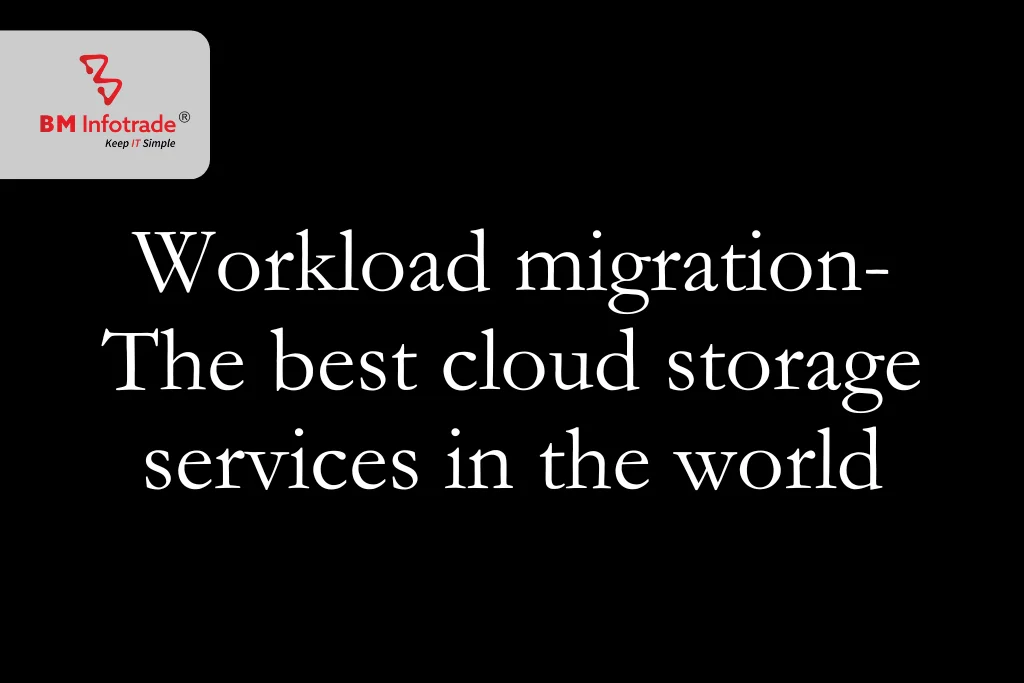Cloud scalability-Cloud-integrated innovation
When discussing cloud computing, the term "cloud scalability" refers to the capacity to scale up or down IT resources in response to shifting demand.

Cloud scalability-Cloud-integrated innovation
Table of Contents
When discussing cloud computing, the term "cloud scalability" refers to the capacity to scale up or down IT resources in response to shifting demand. One of the cloud's distinguishing characteristics and the key factor behind why businesses are adopting it so quickly is scalability.
Scaling of cloud computing infrastructure is possible for data storage capacity, processing power, and networking. The best part is that scaling is quick and simple and usually involves little to no downtime. With on-premises physical infrastructure, scaling used to be a lengthy and expensive process that could take weeks or months. Third-party cloud providers already have all the infrastructure in place.
The flexibility of the cloud was seen as a blessing by businesses and corporations who were constantly worried about data storage, resources, and costs. Prior to the cloud, businesses had to spend a lot of money on technology and data storage. Cloud-based solutions with their distinctive advantages of low cost and easy expansion have emerged in response to this situation.
Smaller companies have a tendency to value and embrace cloud-based storage during periods of economic expansion. For these companies with growing data stores, cloud technology has emerged as a flexible solution. Since its humble beginnings, the cloud has developed into a haven where the majority of the operations of various organizations are conducted.
What Makes Cloud Scalable?
Multi-cloud architecture is made available by virtualization. Unlike real computers, whose capabilities and functionalities are largely fixed, virtual machines (VMs) are incredibly flexible and easy to ramp up or down. Workflows and programs can be moved to a different platform, maintained on several servers at once, or moved to additional oversized VMs as needed.
The vast hardware and software assets required for quick expansion already exist at third-party software companies, which a single organization could not do profitably on its own.In order to overcome many of the shortcomings of conventional information storage, cloud scalability offers a unified data architecture with a number of important advantages.
- Scale-efficient: Resources are quickly and easily distributed in response to constantly changing needs.
- Self-healing: Automatic backup and recovery keeps independent, duplicate copies of all content across a variety of hardware and locations, allowing programs to run even when a disc fails.
- Load-balancing: This technique boosts resource allocation and dependability by automatically distributing workloads among the system's components.
- Remote access via API: This enables the simultaneous retrieval of the same data by multiple specialized tools using different APIs.
- Flexibility: Data may be saved by a single system as documents, modules, event channels, databases, and more.
Read More: Cloud architecture: Workload on the cloud
What Does Scalability Mean in Cloud Computing?
Cloud extensibility is the most notable feature of cloud computing. The expanding industrial demands for computing, networking, infrastructures, and applications can be managed and expanded by a sustainable cloud. In a cloud-based system, you can adjust your information needs accordingly to changes in your operation. It is one of the best and most economical resource management solutions out there.
You can quickly add nodes thanks to a scalable cloud. It makes it possible in the event that you urgently require more processors and storage facilities to handle a larger load. To achieve the goal, you can partially redo your IT architecture. You can swiftly go back to the previous arrangement after the job is finished.
Benefits of scalability in Cloud Computing

Due to the enormous financial benefits of the cloud, businesses of all sizes are using it:
- Accessibility- IT managers frequently have the ability to quickly and easily install new virtual machines (VMs) that appear to be instantly accessible and are tailored to an enterprise's needs. This helps IT professionals conserve valuable time and energy. Instead of spending countless hours and days setting up actual equipment, teams may focus on other tasks.
- Savings- Due to the extensibility of the cloud, businesses may avoid paying up front for expensive technology that might become outdated in a few years. They reduce waste by only paying for what they actually use thanks to cloud service providers.
- Recovery from Disaster- Flexible cloud computing enables you to reduce disaster response costs by eschewing the need to build and manage alternative data centers.
- Added Strength- Regardless of the size of your organization, cloud computing enables access to powerful resources. Due to the flexibility of cloud computing, users of all sizes can access reliable software and informational resources. Many times, technical limitations have prevented businesses from expanding quickly. Putting policies into place and making purchases costs time and money.
- Flexibility and speed- Cloud adaptability enables IT to respond quickly to changing and expanding business requirements, including unforeseen spikes in usage. Now, even smaller businesses can use potent technologies that were previously out of their financial reach. Businesses are no longer restricted by outdated equipment because it is simple to upgrade systems and increase power and storage.
- Storage- Expandable cloud technology is crucial for accelerating economic growth. In order to meet demand, businesses may increase their data storage using cloud technology. It implies the loss of physical infrastructure and associated costs.
Read More:-
Conclusion:-
Cloud scalability is the ability to add or remove resources to accommodate changes in demand. Maintaining and growing your business requires a scalable cloud architecture. Scalability of the cloud is enabled by virtualization. Your cloud model will determine how a business achieves scalability, though.
To take advantage of scalability opportunities, businesses are moving to the cloud. Why? Scaling cloud services has a lot of benefits. The advantages of cloud scaling, for instance, include flexibility and cost savings. To achieve the best results, you must consider how to scale your business.







Anshul Goyal
Group BDM at B M Infotrade | 11+ years Experience | Business Consultancy | Providing solutions in Cyber Security, Data Analytics, Cloud Computing, Digitization, Data and AI | IT Sales Leader